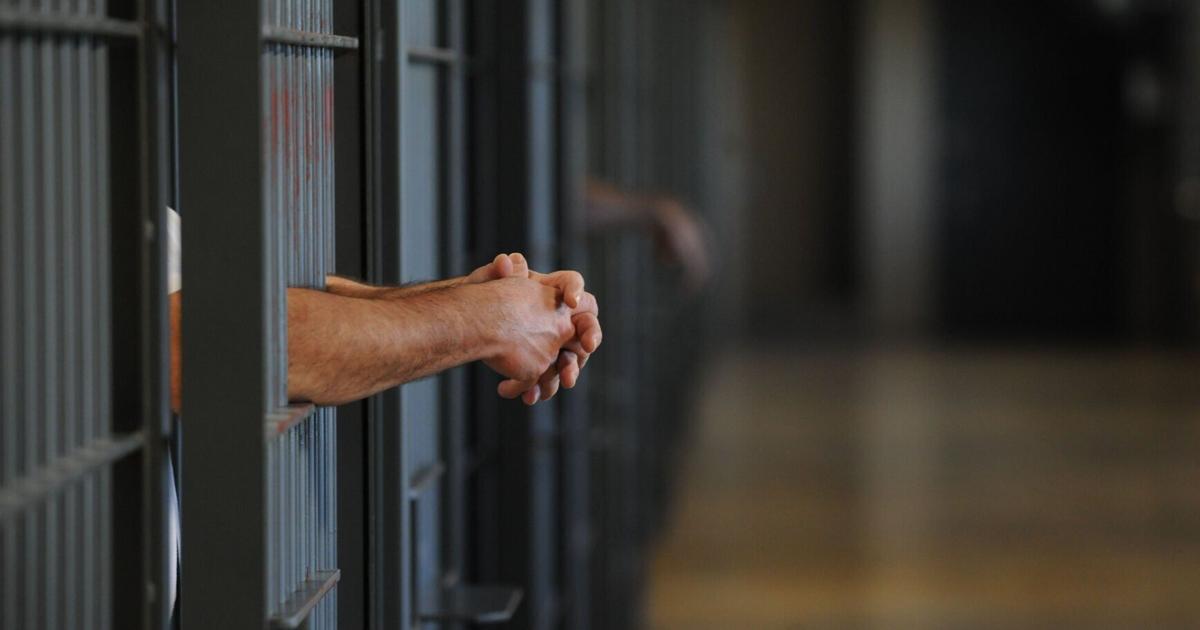
Louisiana’s pardon board will consider at most five clemency applications from death row prisoners under a settlement deal that strikes a potentially fatal blow to a historic effort to empty the state’s death row.
A Baton Rouge judge on Tuesday dismissed a lawsuit that sought to halt 55 death row clemency pleas after Louisiana prosecutors who opposed them struck a deal with the state’s pardon board. The Louisiana Board of Pardons and Committee on Parole had planned to consider at least 20 of the 55 requests to commute prisoners’ death sentences to life in prison without parole.
Now the panel will consider just five of those applications, an outcome that frustrated the prisoners’ attorneys on Tuesday.
The end of the legal challenge leaves uncertain the fate of other death row prisoners who submitted clemency applications to the pardon board in June — which came months after Gov. John Bel Edwards, who must approve clemency requests for them to take effect, first said he supported abolishing the death penalty.
Cecelia Kappel, an attorney from the Capital Appeals Project who filed the clemency requests, said responsibility now falls on Edwards to exercise his executive authority and compel the board to hold clemency hearings for each of the prisoners.
“It is now up to the Gov. to once again show leadership, exercise his authority, and ensure that the board holds clemency hearings before he leaves office,” Kappel said. “The lives of the individuals on death row are in his hands.”
An Edwards spokesperson declined to comment.
Lawyers for the death row prisoners said the settlement was drafted with the input of attorneys they argue were hand-picked by Attorney General Jeff Landry — himself a plaintiff in the lawsuit — to represent the board after Landry fired a previous lawyer from that position last week.
“What we’ve had in the last three days is a complete capitulation by the board to align itself no longer with the governor’s directive, but with the attorney general and the district attorneys,” Michael Arata, an attorney for the death row prisoners who requested clemency, told reporters after the hearing.
“The settlement agreement…essentially accepts 100% of the requests that were made in the preliminary injunction,” Arata added, referencing the demands first requested by Landry and other prosecutors. “It’s a complete capitulation and a wholesale flip.”
Through a spokesperson, Landry has said he dismissed the pardon board’s initial lawyer, Art Smith, over a conflict of interest stemming from pending litigation Smith was working on.
Smith in an interview Tuesday acknowledged that he has pending cases against the Pardon Board and the state corrections department. But Smith divulged those cases to board members and an outside ethics expert, he said, each of whom told Smith they did not amount to conflicts of interest.
After Smith’s firing the board hired Sher Garner, a politically active New Orleans law firm that has represented state agencies on hot-button issues in the past, to take on the case. Sher Garner attorneys represented the board during deliberations over the settlement and during Tuesday’s hearing.
Attorneys for the prisoners were still trying Tuesday to discern the deal’s status and how it would affect their clients along with the court decision.
The hearing grew fiery as Judge Don Johnson and East Baton Rouge District Attorney Hillar Moore exchanged sharp words and a half-dozen district attorneys clamored to make their arguments heard over Arata and, occasionally, one another.
At one point, Moore rose and started speaking in an attempt to refute part of Arata’s argument. Johnson swiftly cut in to silence him.
“Mr. Moore, have a seat. Have a seat, Mr. Moore,” Johnson said.
“I’m sitting, judge,” Moore responded as he returned to his seat.
A long silence ensued before Johnson told Arata to continue his arguments. Speaking with reporters later, Moore apologized for the outburst, saying his emotions got the best of him.
“I apologize,” Moore said. “It’s uncharacteristic of me to make a rash statement. But it just hit me hard, talking to these families (of victims) and feeling somewhat how they feel.”
He added that the settlement deal was created “in good faith.”
Prosecutors and police unions who oppose the clemency applications have described them as an attempt to seize a sliver of opportunity before Edwards, a Democrat, exits the Governor’s Mansion in January.
Landry, Moore and other prosecutors say clemency would be a slap in the face to prisoners’ victims and their families. They filed the lawsuit in September challenging the validity of the clemency requests’ path mostly on procedural grounds.
Supporters, including the Vatican, local clergy and others say the death penalty is inhumane and raises the potential for wrongly convicted people to be put to death. Clearing Louisiana’s death row “would be a monumental step towards the abolition of the death penalty,” Archbishop Vincenzo Paglia, president of the Vatican’s Pontifical Academy of Life, wrote in a letter to Edwards last week.
An Edwards spokesperson did not immediately respond to a request for comment.
If approved, none of the clemency applications would free death row prisoners from jail. They instead ask the prisoners to have their sentences commuted to life terms without the potential for parole.
Arata, the death penalty prisoners’ lawyer, said he and his colleagues would weigh an appeal in order to “seek fairness and open hearings” for the clemency applicants.
This post was originally published on this site be sure to check out more of their content.







